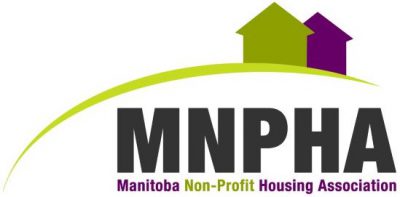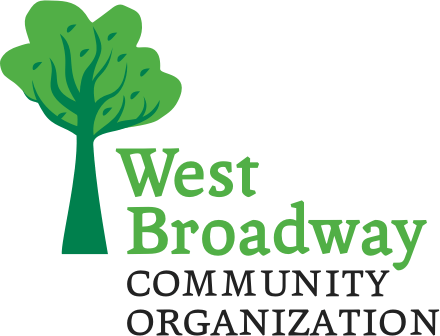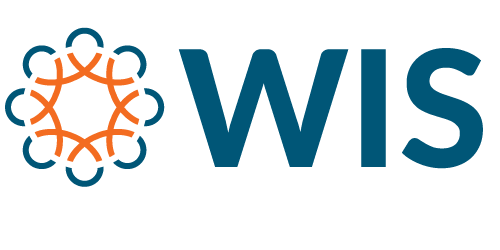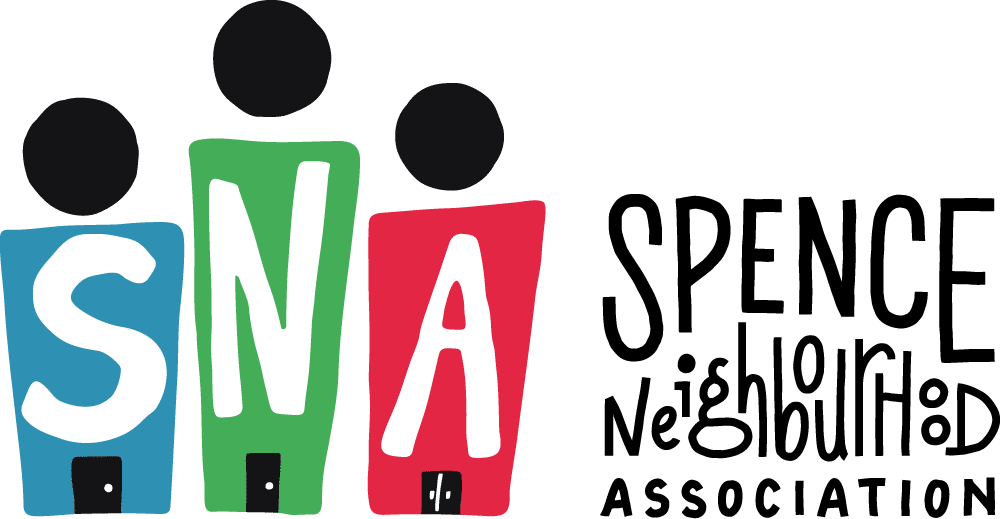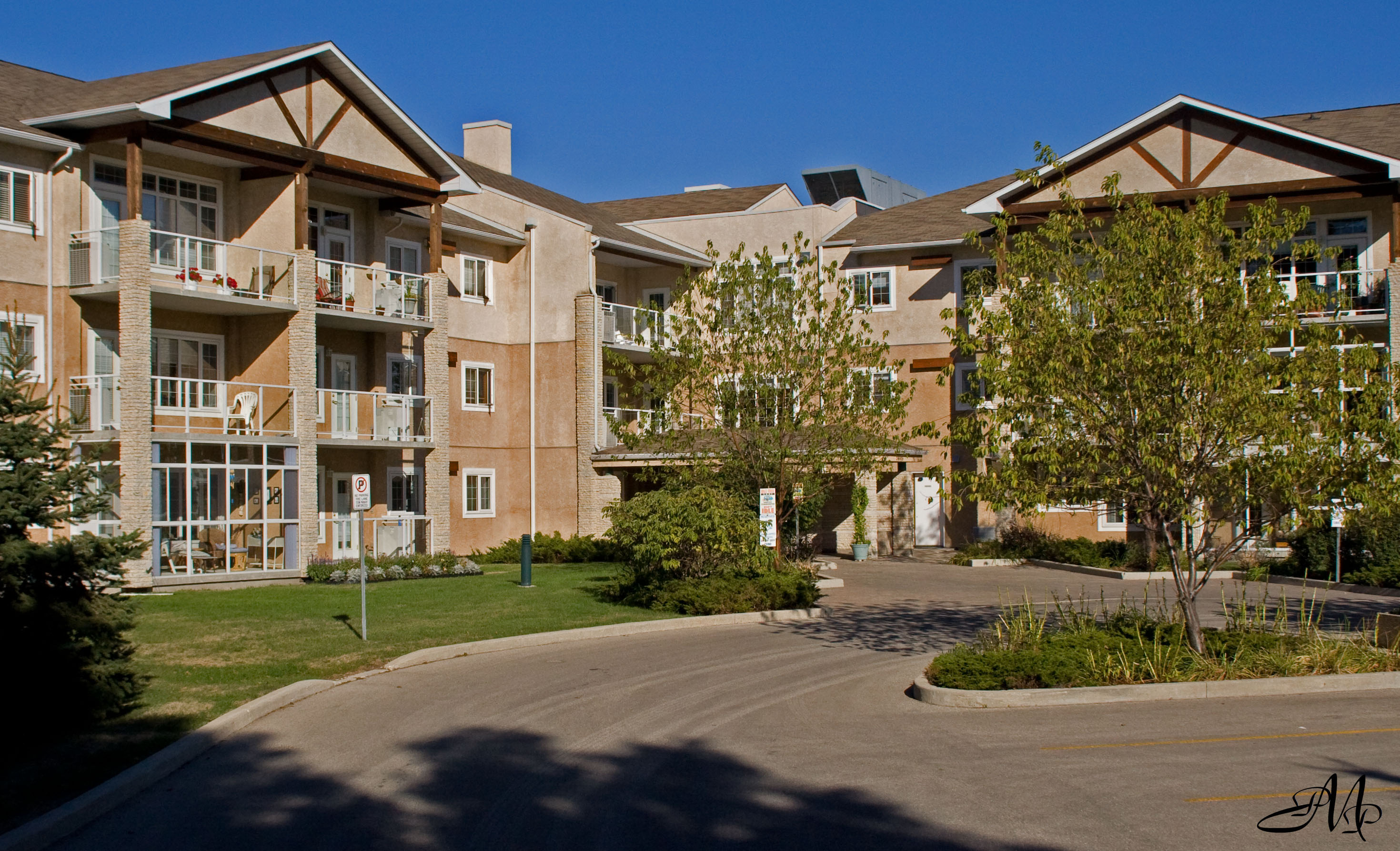
The Housing Supports Initiative provides funding for programs and services for individuals and families as they transition from homelessness, or face the risk of homelessness, to ensure successful tenancies.
Funded By:

In March of 2021, the Province of Manitoba provided MNPHA with $2.56 million in funding to be allocated to community partners that would create and expand support services for individuals and families facing housing precarity and homelessness.
MNPHA engaged with community to create a plan to distribute funds, and three priority areas were identified; Maintaining Successful Tenancy, Sector Capacity Building, and Case Management. The funding was distributed to organizations throughout Manitoba’s non-profit housing and homelessness sectors via a peer-reviewed call for proposals process.
The Housing Supports Initiative is currently funding 19 unique projects that expand the capacity of non-profit housing and partner organizations across Manitoba to promote successful tenancies for those exiting and at risk of homelessness. With the funding these organizations can now offer a broad range of programs for tenants, including help accessing mobility supports, grocery shopping and food preparation, transportation, mental health care, budgeting and life skills education, as well as using the funds to provide case management and community outreach, and increase sector capacity through education and partnerships. Over the two years of this Initiative combined, about 450 individuals will be supported to improve their housing circumstances, and eviction prevention services provided to about 900 individuals.
You can find a full list of Housing Supports Initiative recipients below, with links to the organization’s websites, as well as profiles (ongoing) of their projects.
FUNDED ORGANIZATIONS

In partnership with Manitoba Association of Women’s Shelters and with the support of the Housing Supports Initiative, as well as other funders, The Jubilee Fund will be launching Canada’s first rent guarantee program for at-risk women in Manitoba in May 2022!
When at-risk women are unable to secure public or non-profit housing due to lack of availability, they often turn to for-profit housing but get turned down due to lack of a rental history and/or financial viability in the landlords’ eyes. This can cause them to go back to abusive partners or secure housing with predatory property owners.
This new, innovative program’s sole purpose will be to co-sign for at-risk women’s rent as they rebuild their lives on tight budgets, and help build their rental history to build their independence and secure a safe and good future for their children.

Central Station Community Centre is a nonprofit organization in the heart of Winkler that serves the City of Winkler and the rural communities in the RM of Stanley.
The organization was established in 2014 and manages housing units, operates a drop-in space, offers a variety of programs, and functions as a hub that can help connect community members that may be marginalized, underprivileged, or low income to the resources they need. Central Station is using the HSI funding to run the Community Action Training program, which focuses on education, engagement, building on individual skills, and supporting personal empowerment. The objective of the program is to create lasting change by empowering individuals that may face inequality and inequity to learn about and develop the tools needed to advocate for themselves.
Participants of the program will learn from local experts about issues such as food insecurity, accessing government benefits, conflict resolution, cultural sensitivity, housing rights and the Residential Tenancy Branch, and more.
Central Station Housing Coordinator, Lori Penner, says the program was developed in house, with each aspect of the curriculum “being led by people with lived experience with things from income assistance to immigration to child and family services”. There are a dozen people registered for the next round of training, which consists of 12 different sessions that address life skills and employability while also preparing participants to work in advocacy.
Penner explains that the program is geared to “people who want to access services and those who want to help provide services”, bridging a gap between clients and workers, and ensuring that more people are aware of the variety of community services available in Winkler and the surrounding area. Upon completion of the program, graduates will have the opportunity to work in the advocacy office. After working in the advocacy office for a year they will have developed basic office skills and references will be provided for future employment opportunities.
Central Station’s goal is to run the Community Action Training program twice a year, providing the opportunity for 40-50 participants to complete the training and become active advocates in their neighbourhoods.

The Ask Auntie Project was developed at the Brandon Neighbourhood Renewal Corporation (BNRC) during the height of the COVID-19 pandemic, in March 2021, as a response to a lack of resources amidst widespread closures across the city. These closures left vulnerable and homeless populations quite literally out in the cold, and Ask Auntie stepped in to fill the gaps, with a focus on providing support to Indigenous people.
Ask Auntie provides an array of supports to individuals in need of everything from a hot coffee and access to hygiene supplies to a community mailbox. Program Coordinator Florence Halcrow explains that the community mailbox allows the vulnerable and homeless population in Brandon to make copies of their ID and keep the originals safe.The Blue Door project, another branch of Ask Auntie, solved the problem of major resource gaps created by Covid-19 by providing a space to eat meals provided by shelters and food banks, a place to use washrooms and access hygiene supplies, and somewhere to fill out applications for housing, income assistance, or identification, all while adhering to social distancing practices.
Ask Auntie currently has four staff members, two working out of BNRC and two at the Blue Door, as well as volunteers and practicum students. By establishing relationships with precariously housed individuals and working with them to create pathways through colonial structures, Ask Auntie is helping protect tenancies and create access to housing. The grassroots model the project follows means that the Ask Aunties work is broad and varied, and they meet program participants where they are at.
Halcrow says “It takes a good network and community to make something like this happen. We wouldn’t be able to do it on our own.”

Sara Riel provides a safe, inclusive and engaging environment for people facing mental health and substance use/addiction challenges, with a goal of helping them reach their full potential. The HSI funding will help the organisation address the mental health epidemic by hiring new staff to reach out to individuals experiencing, or at risk of experiencing homelessness.
New HSI-funded staff at Sara Riel include a full-time peer support worker and a case manager, both of whom deliver important mental health and addiction support to people facing housing crises, especially due to COVID-19. These staff provide assisted daily living and wrap around support to individuals residing in the community.
Sara Riel’s Executive Director, Tara Snider, says that the need for the type of support the HSI makes possible is “overwhelming”, and that Sara Riel currently has 33 people on the waiting list to access services. The new staff will help with this backlog, and will continue to provide much needed assistance with daily living skills. Snider explains that “these
positions have assisted with doctors appointments and going to the bank, nutrition, laundry, day to day things. The case manager will sit down with participants and set goals, the individual will be able to move forward”.
In addition to the more pragmatic aspects of daily life, the programming involves “working with individuals so they can see
alternate ways of doing things. We want to be able to look at positive cognition and see what we can do based on the strengths of participants. The case manager sets goals, and we have a community mentor role with lived experience that can really connect using peer support values to form a relationship that can be built upon”, explains Snider. Recovery is not a one-size-fits-all journey, and having dedicated staff to form solid relationships with participants and give them guidance based on a deeper understanding of their personal strengths and the specific challenges they face is important.
Snider goes on to explain that Sara Riel’s work, and specifically that of the HSI-funded positions, “is recovery oriented, working with people with mental health, substance use and addiction. It is inclusive and safe, compassionate and respectful. The workers follow harm reduction and trauma informed care, and will continue to learn new skills.
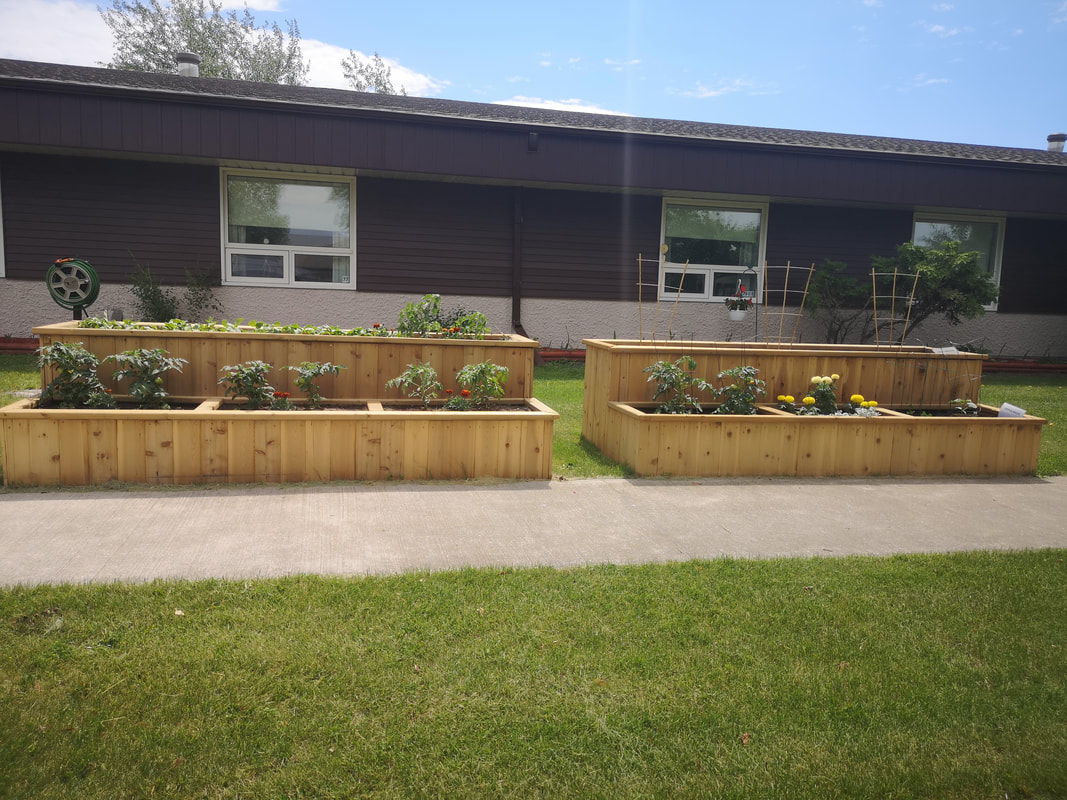
Chalet Malouin, located in St. Malo, provides housing to seniors who are at risk of homelessness in a rural area with a lack of affordable housing options. The Housing Supports Initiative funding they received has been used to create a full time Housing Support Worker position that has already had a positive impact on those living at Chalet Malouin and on prospective tenants.
The support worker reaches out to seniors facing homelessness and helps them access Chalet Malouin’s housing programs, and existing programs within the community. The organization’s director, Martha Petrusevich, says there is a shortage of rural housing, and that it has been incredibly helpful “to have an additional person to reach out to community, let them know that we do offer low income housing, the lowest in the surrounding towns”.
Petrusevich goes on to explain that “some of our folks come from really bad situations, and in order for them to get housing [at Chalet Malouin] they would need to go through getting rid of bugs etc., and we have a very small staff so there was no one to help them get connected to programs and services offered by the municipality. This way we can connect folks to the right resources at a faster pace and get people moved in sooner.”
In addition to helping prospective tenants, Petrusovich says the support worker connects those already living at Chalet Malouin with services “such as handi-transit, a foot care nurse, medical appointments, free wheelchairs, hair salon, pharmacy, and groceries” among other essential services. Chalet Malouin is also the only organization in the surrounding community that offers an affordable meal program that serves three meals per day, seven days a week for people on fixed incomes. Seniors from the community that are living on their own are encouraged to use the meal program.
Petrusevich says “before this grant I did not have the staff to do it all, now the full-time staff Housing Support Worker posts vacancies, contacts the waitlist, helps tenants identify emergency contacts, and connects them to community. Some people come to us with nothing and have no one, so we find clothing and mattresses by reaching out to community and local thrift stores”.
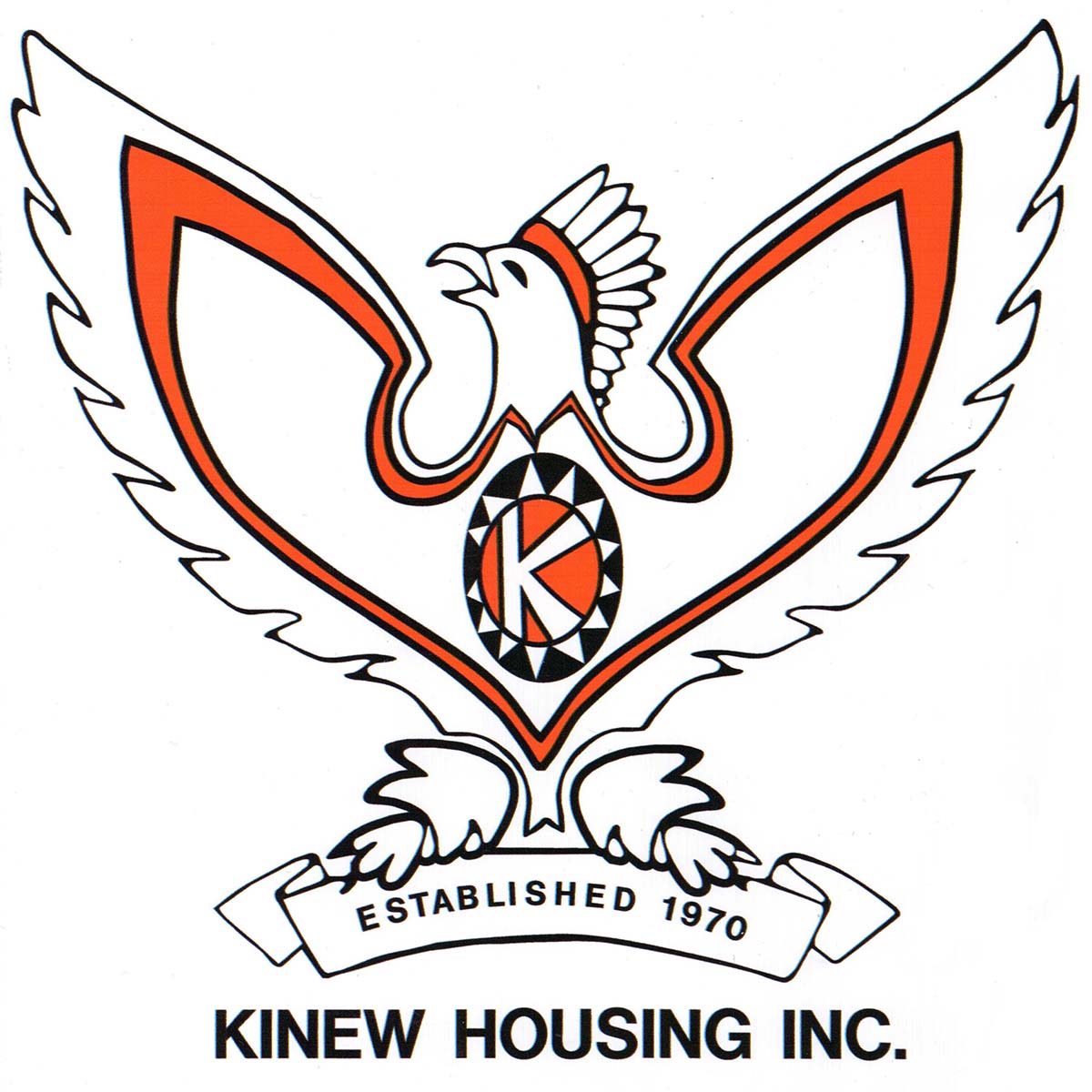
Kinew Housing Inc. was created in Winnipeg in 1970 by a small group of community members who were concerned about the lack of decent and affordable housing available to Indigenous people in this city. At the time, Kinew Housing Inc. was the nation’s first Indigenous-led non profit urban housing corporation. Kinew’s success has stimulated the creation of many
more urban Indigenous non-profit housing societies located across Canada.
Kinew focuses primarily on the acquisition and rehabilitation of older homes, and is using the HSI funding to hire a Housing Support Worker who is connecting with vulnerable tenants. In addition to helping create secure tenancies and prevent eviction, the Support Worker is undertaking a training program with Mediation Services.
Although the position is very new, results are already being seen. Kinew Manager, Lawrence Poirier, says “the Support Worker has been working with tenants to make sure they are staying on top of water and hydro bills, trying to make sure readings are accurate, bringing that aspect under control. The last thing we want is to evict someone because of a water bill”. The Support Worker has also been working with tenants who struggle with hoarding, which Poirier says “is an ongoing process, from something as simple as bringing a handful of garbage bags to their home to connecting tenants to resources
that can help them”.
Kinew’s properties are mainly single family homes with yards, and waste disposal and basic yard maintenance is the responsibility of the renter. When this is neglected a tenant runs the risk of garnering complaints based on the
Neighbourhood Liveability By-law, which regulates the maintenance of properties. Accessing waste disposal services through 311 or navigating complex application systems for supportive programming can be onerous, and the Support Worker helps tenants move through these processes, ensuring they are aware of their responsibilities and reducing complaints from neighbours.

North End Community Renewal Corporation (NECRC) is using the Housing Supports Initiative (HSI) funding to increase the capacity of the RentSmart program within Manitoba. The RentSmart program, which enhances the ability of the non-profit sector to support vulnerable tenants through eviction prevention strategies and mentorship, is in high demand across the
province. The HSI funding will be used to increase the program’s capacity by training more certified educators, developing new learning opportunities for both tenants and landlords, and creating an MOU that would allow RentSmart certification to be recognized as a reference on housing applications.
The RentSmart program teaches prospective tenants a range of life skills, including the importance of a home and how to take care of it, how to apply for housing, tenant rights and responsibilities, communication and conflict resolution, and budgeting.
Alana Ring-Woodard has been facilitating RentSmart across Manitoba for 5 years and has seen the positive impact the program has on both tenants and landlords. She says “these key life skills [taught through RentSmart] create successful tenancies and foster connection, a lot of people will panic when facing challenges in a tenancy, but the program encourages them to reach out to resolve conflict”. The program also educates landlords on a range of topics, creating awareness of the different barriers tenants face.
Ring-Woodard says RentSmart certification is recognized within the sector and proves that an individual has gained a set of knowledge and life skills. Including RentSmart on a tenant’s housing application increases the likelihood of acceptance,” and is especially valuable because it’s a voluntary initiative”. She uses the example of Kinew Housing, explaining that the program
has improved their rate of acceptance of tenant applications that lack references or rental history. NECRC is working with Marcella Poirier, a Senior Development Consultant, to help develop an MOU that would allow RentSmart certification to be recognized as a reference on tenancy applications. Poirier is gathering research and will conduct a community consultation this spring to identify key priorities and needs.
In addition to empowering tenants and helping them foster healthy relationships with landlords, thereby lowering eviction rates and improving the likelihood of successful tenancies, Ring-Woodard says the program facilitates knowledge sharing and can help standardize education and orientation practices within the non-profit housing sector.
